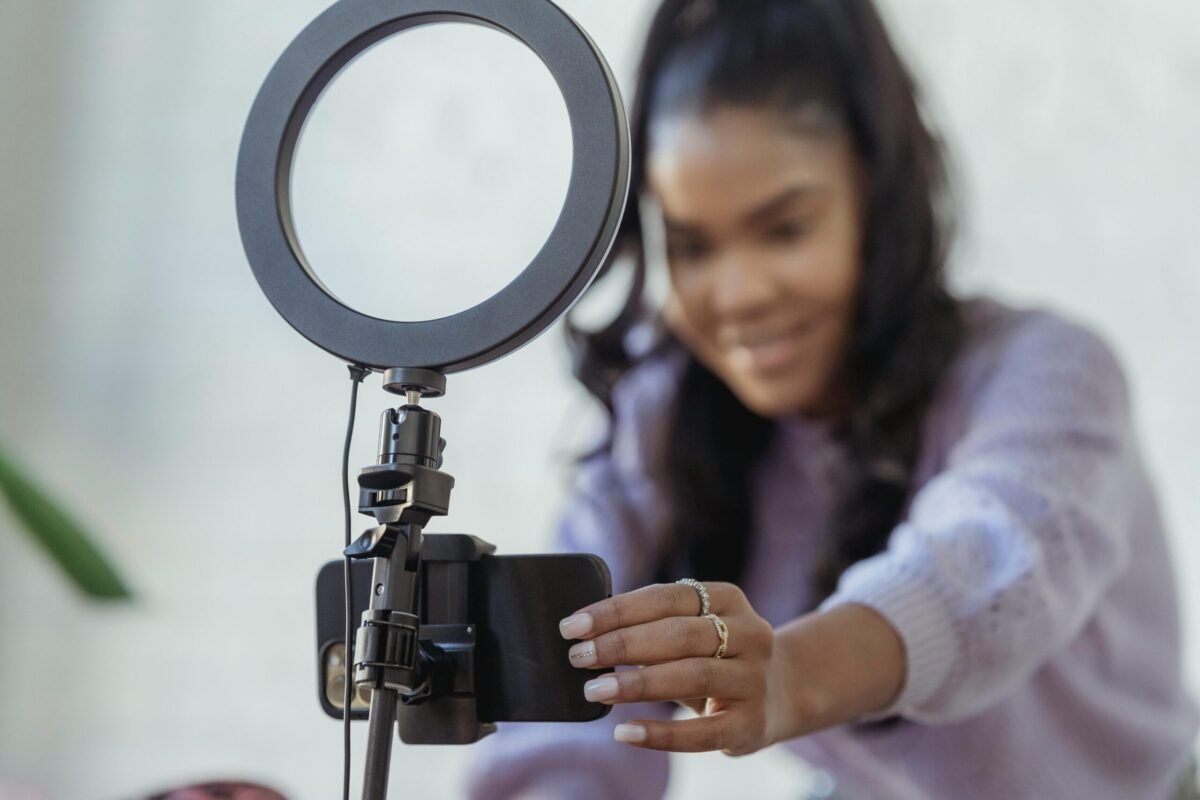If you are looking for a new job or want to advance your career, you know how important it is to prepare well for job interviews. Interviews are your chance to showcase your skills, personality, and fit for the role and the organization. However, preparing for job interviews can be challenging and stressful, especially if you don’t have much experience or feedback.
One of the best ways to improve your interview performance is to record yourself answering mock interview questions. This can help you in many ways, such as:
- Boosting your confidence: By practicing your answers out loud, you can overcome your nervousness and gain more self-assurance. You can also rehearse your body language, eye contact, and voice tone, which can make a big difference in how you come across to the interviewer.
- Identifying your strengths and weaknesses: By watching your video, you can objectively assess your performance and see what you did well and what you need to work on. You can also spot any bad habits, such as filler words, fidgeting, or rambling, and correct them before the real interview.
- Refining your answers: By reviewing your video, you can polish your answers and make them more concise, clear, and relevant. You can also check if you answered the question completely and provided enough examples and evidence to support your points.
- Learning from others: By comparing your video with other sources, such as online videos, books, or articles, you can learn from the best practices and tips of other successful interviewees. You can also get feedback from others, such as friends, family, or mentors, and incorporate their suggestions into your answers.
Tips on Recording Yourself
Recording yourself answering mock interview questions is not difficult, but it does require some planning and preparation. Here are some tips on how to do it effectively:
- Choose the right questions: You can find many sample interview questions online, or you can create your own based on the job description and the company. Try to choose questions that are relevant, challenging, and realistic. You can also mix different types of questions, such as behavioral, situational, technical, or personal.
- Set up the equipment: You can use any device that has a camera and a microphone, such as your phone, laptop, or tablet. Make sure the device is stable and positioned at eye level. You can use a tripod, a stand, or a stack of books to support it. You should also choose a quiet, well-lit, and professional-looking background, such as a wall, a window, or a bookshelf.
- Dress appropriately: You should dress as if you were going to the actual interview, even if you are recording yourself at home. This can help you get into the right mindset and make a good impression. You should also avoid wearing anything that is too flashy, distracting, or uncomfortable.
- Time yourself: You should set a timer for each question and try to stick to it. A good rule of thumb is to spend about two minutes per question, unless the question is very complex or requires a longer explanation. You should also avoid pausing, restarting, or editing the video, as this can reduce the authenticity and spontaneity of your answers.
- Be yourself: You should answer the questions honestly, sincerely, and confidently. You should also show your personality, enthusiasm, and interest in the role and the company. You should avoid memorizing or reciting your answers, as this can make you sound robotic or unnatural. Instead, you should use bullet points or notes to guide your answers and improvise as you go.
Tips on How to yield Valuable Insights from Watching your Video
After you record yourself answering mock interview questions, you should watch your video and evaluate your performance. This can help you identify your areas of improvement and make adjustments for the next time. Here are some tips on how to watch your video effectively:
- Watch it multiple times: You should watch your video at least twice, once with the sound on and once with the sound off. This can help you focus on different aspects of your performance, such as your content, your delivery, and your non-verbal cues. You should also watch your video from different perspectives, such as from the interviewer’s point of view, from your own point of view, and from a third-party observer’s point of view.
- Take notes: You should take notes while watching your video and write down your observations, feedback, and suggestions. You should use a simple rating system, such as a scale of 1 to 5, to rate your performance on various criteria, such as clarity, relevance, structure, evidence, confidence, enthusiasm, etc. You should also highlight your strengths and weaknesses and list the specific actions you can take to improve them.
- Be constructive: You should be honest, but not harsh, with yourself. You should acknowledge your achievements and celebrate your progress, but also recognize your mistakes and learn from them. You should avoid being too self-critical or self-complacent, as this can either discourage you or prevent you from growing. Instead, you should aim for a balanced and realistic assessment of your performance and set realistic and attainable goals for yourself.
- Seek feedback: You should also seek feedback from others, such as friends, family, or mentors, who can offer you a different perspective and valuable insights. You should ask them to watch your video and share their opinions, comments, and suggestions. You should also ask them specific questions, such as what they liked, what they didn’t like, what they would change, etc. You should listen to their feedback with an open mind and a positive attitude and thank them for their time and input.
In Closing
Recording yourself answering mock interview questions is a great way to prepare for your next interview and ace it. It can help you boost your confidence, identify your strengths and weaknesses, refine your answers, and learn from others.
To record yourself effectively, you should choose the right questions, set up the equipment, dress appropriately, time yourself, and be yourself. To watch your video effectively, you should watch it multiple times, take notes, be constructive, and seek feedback.
By following these tips, you can improve your interview performance and increase your chances of landing your dream job. Good luck and happy recording!
Related Posts
5 Tips for Answering Interview Questions You Don’t Know the Answer To
What to Say and What Not to Say About a Previous Employer
How to Conduct a Self-Assessment to Identify Your Strengths and Weaknesses
Why You Should Never Criticize a Former Employer During a Job Interview
How to Use the STAR Method to Answer Interview Questions









